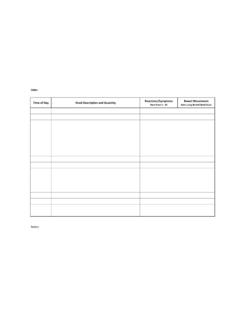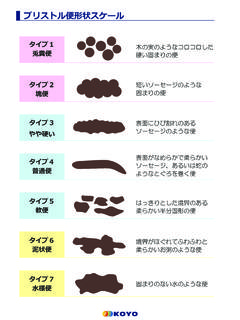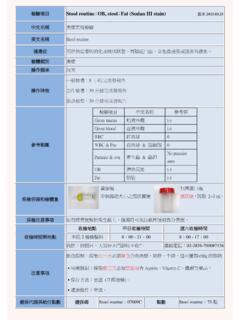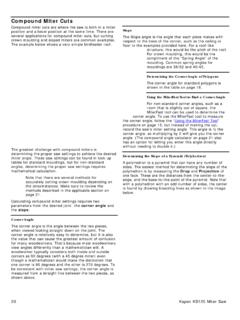Transcription of Stool holding: When your child holds back bowel …
1 1285 Hembree Road Suite 100 Roswell, GA 30076 770-442-1050 Stool holding: when your child holds back bowel movements and is not toilet trained About 5% of children refuse to be toilet trained. They get into a tug-of-war with their parents over using the toilet. Some of these children decide to hold back bowel movements (BMs). That behav-ior can lead to constipation, painful BMs, and even complete blockage ( Stool impaction). Impacted chil-dren constantly leak (ooze) Stool in small amounts (soiling or encopresis). If the impaction persists for long, the rectum and colon become stretched out of shape and are no longer able to squeeze out Stool . Unblocking the bowel may require some enemas. Keeping the child unblocked requires three to six months of laxatives or Stool softeners.
2 Stool holding is an important prob-lem to recognize early and treat vigorously. The following steps can help you help your child end Stool holding and soiling: Clarify the goal with your child . Remind your child that his (or her) job is to make a poop come out every day. Tell him " your body makes a poop every day" and "the poop wants to come out every day". Emphasize poop production and release. Older children who don't like Stool leakage can be told "If you poop every day and keep your body empty, nothing will leak out." Give laxatives to keep the rectum empty. Most Stool holders need a laxative. Laxatives ( bowel stimulants) cause the large intestine to contract, pushing the Stool toward the rectum. Most laxatives con-tain senna, a natural plant extract.
3 Don't worry that your child might become dependent on laxatives - that is, that the bowels won't move well without them. Laxatives can be withdrawn gradually, even after your child has used them for many months. The most important goal is to keep the rectum empty. your child 's laxative is _____. The dose is _____given_____Backup plan to prevent blockage: If your child goes 48 hours without a BM, give _____ as follows _____ Give Stool softeners for hard bowel movement. Stool softeners make stools softer and easier to pass. Unlike laxatives, they do not cause bowel contractions or pressure. Some commonly prescribed Stool softeners are mineral oil, milk of magnesia, Miralax, and high-fiber products. your child 's Stool softener is _____. The dose is _____Increase the dose gradually until your child is passing one or two soft BMs each day.
4 Transfer all responsibility to your child . your child will decide to use the toilet only after he (or she) realized that he has nothing left to resist. Have one last talk with him about the subject. Empha-size that his body makes poop every day and that it belongs to him. Explain again that his poop wants to go into the toilet and his job is to help the poop come out of his body. Tell your child you're sorry you forced him to sit on the toilet or reminded him so much. Tell him from now on he doesn't need any help. Then stop all talk about the subject (potty talk"). Pretend you're not worried about it. when your child stops receiving attention for nonperformance (not using the toilet and holding back Stool ), he will eventu-ally decide to perform for attention.
5 Stop all reminders about using the toilet. Let your child decide when he needs to go to the bath-room. He knows what it feels like when he has to poop and where the bathroom is. Reminders are a form of pressure, and pressure keeps the power struggle going. Stop all practice runs and never make him sit on the toilet against his will because this always increases resistance. He needs to gain the feeling of suc-cess that comes from doing it his way. Because Stool holders are hurting their body, there are some exceptions to the no reminders rule: If your child complains about abdominal pain, clarify how to make it go away. Tell him: "The poop wants to come out; the poop needs your help. Holding back causes a tummy-ache." Offer to help him sit in a basin of warm water to relax the anal sphincter.
6 If he refuses, tell him, "I can't help you. You have to help yourself." Then ignore your child or put him in time-out. Tell him to come back after the poop is out. Do not give positive attention for Stool -holding behavior. If your child is obviously holding back a BM, initially say nothing in hopes he will do the right thing. If he holds back for more than five minutes, give a pleasant verbal reminder. First say, " your body is talking to you. What does it want you to do?" If necessary, add "The poop wants to come out and go into the toilet. The poop needs your help." Tell your child that you want sitting on the potty to be lots of fun. What would he like to do (such as read favorite books)? If he declines your offer to provide a special potty activity, say nothing more and let him decide how he wishes to respond to the pressure of his rec-tum.
7 For Stool leakage, put your child in "poop jail". If your child is leaking Stool , ground him until he passes a BM. Tell him: " when poop leaks out, it always means there's a large poop inside trying to get out and you need time to think about how to help your body get it out." Tell your child he's grounded in "poop jail" until he passes a big poop. He can leave "poop jail" only for essential events: meals, pre-school or school, scheduled classes such as music lessons, or team events. Otherwise he must stay in his bedroom with no TV, videos, computer games, or visits from friends until he completes his assignment. Using the term poop jail keeps the intervention humorous and more acceptable for most children. To protect your role as your child 's ally, you can attribute the restriction to "doctor's orders.
8 " If your child complains, give him a hug and blame the doctor. If this approach doesn't work, consider restricting your child to the bathroom, informing him that he can't come out until he produces a normal-sized poop. If your child goes two or three days without passing a BM, ground him until he passes a big poop (at least the size of a banana). Remember that holding back Stool causes it to become larger and wider. After four or five days, it will become too wide to pass. Give incentives for using the toilet. You must find the right incentive to encourage your child to go poop into the toilet. Initially err on the side of giving too much (several food treats each time). The potency of incentives is increased by reducing access to them except when your child uses the toilet.
9 If you want a breakthrough, make your child an offer he can't refuse, such as going somewhere special. (See the "Guide for Parents: Using incentives to motivate your child .") Also, give positive feedback, such as praise and hugs every time your child tries to use the toilet. On successful days, consider taking 20 extra minutes to play a special game with your child or taking him to his favorite playground. Give stars for using the toilet. Get a calendar for your child and post it in a visible location. Call it the "Good Pooper Chart". Have him place a star on it every time he poops into the toilet. Keep this record of progress until your child has gone one month without any soiling. Make the potty chair convenient. Be sure to keep the potty chair in the room your child usually plays in.
10 This gives him a convenient visual reminder about his options whenever he feels the need to pass poop. Allow your child to use diapers or pull-ups for BMs if necessary. You want your child to look forward to releasing BMs rather than holding them back. If your child refuses to sit on the toilet, having BMs in diapers or pull-ups is always better than poop holding. Give your child access to diapers or pull-ups, but don't let him wear them all day. Keep him in loose-fitting underwear so that he has to decide each time he has an urge to pass a BM whether to use the toilet or to come to you for a diaper. To help him make the right choice, offer major incentives, such as a trip to a favorite restaurant or toy store, for BMs in the toilet. Offer minor incentives, such as candy, for BMs in the diaper.







